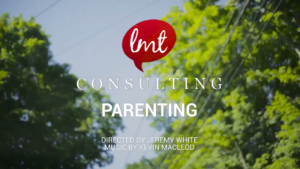Jan 19
We Are All Parenting Wrong!
It’s ironic there are tests to drive motor vehicles, educational requirements for work, licensing requirements for certain professions but there is no requirement to be a parent. After nine months of care in a safe secluded space, a baby is thrust into the arms of people with little to no experience and no manual to follow. Meanwhile these same individuals responsible for the physical and emotional guardianship of another human being will suffer the self-imposed pressure to do everything “right.”
First and foremost, we are all doing it wrong! Despite my own good advice, tireless research and extensive understanding of behavior; I am going to mess-up, misdirect and misguide my children many times before they are old enough to blame me for their much-needed therapy. It’s important to acknowledge it while they are young so we can all move on.
With that out of the way, below are common examples of how we are parenting wrong:
The Golden Rule – Most people follow The Golden Rule “Do unto others as you would have them do unto you”. This advice has us falsely assuming others think the same way we do. They don’t and our differences are exacerbated in the underdeveloped brain of a child. It’s important to understand the behavioral tendencies of our children and respond in a way that brings out the best in us and them
Consider the Platinum Rule “Do unto others as they want done unto them.” By asking questions and paying attention to the natural predisposition of our kids we can create opportunities to connect on their level, increase trust and deepen the relationship.
One of my clients had two boys. The oldest son told his father, “You love Mike more than me.” The father was upset and said, “That’s crazy! I love you both the same. How could you say that? I do so much for you. I take you to hockey and coach your baseball team…” The son shut down and stopped talking. My recommendation was for my client to revisit the conversation with a different approach. He said, “I’m sorry you think I love Mike more than you. That is NEVER my intention. I think I show you I love you but if you don’t feel loved than I’m not doing the wrong things. How can I show you how much I love you?” His son’s response blew his mind, he said “Will you play basketball with me more often?” It was that simple. The way we show love may not be how our children want to receive it. Ask and find out.
Competition – For highly competitive parents it’s difficult to watch a less competitive child navigate their school years. Today’s parents believe children (as young as pre-school) need to do more and participate at the highest level to get into a “good college.” As a result less intense children suffer devastating confidence issues, are burnt out at a young age and don’t enjoy activities intended to be fun.
Not all children participate to “win” – some want to learn the skill, some enjoy the opportunity to play, and others do it to be with their friends. Similarly, not all children are geniuses. Parents pressuring kids into higher level classes and honors programs are feeding their own needs more than providing opportunities for the child. Asking children the result they expect from an experience – school, sports, hobbies – is vital to understanding their behavior. The practice of questioning helps children articulate their wants/needs and allows them to establish success based on their definition not ours.
One of my clients is highly competitive and loves sports. As a result he pushes his kids to play. Although they enjoy sports, he doesn’t understand why they don’t play to win. After his daughter’s basketball game she happily went to talk to her Dad about how great she felt on the court. Instead of sharing her excited he said, “Why didn’t you shoot? The team lost by one point, if you scored when you had the ball the team could have won.” The daughter quickly lost her enthusiasm and tried to explain she didn’t like to score; she rather pass to stronger kids on the team and because of her two assists she thought she had a good game. Her explanation fell on deaf ears as he continue to emphasize all the times she missed her opportunity to shoot. I suggested he revisit the conversation and ask his daughter what she likes about basketball and what her goals were for being on the team? He did and learned she like to be with her friends and her goal was to get better. He also learned she didn’t like the pressure of the game which is why she played on the local team instead of the travel team he suggested. With this new perspective he could enjoy watching her play because he watched the game with goals in mind instead of his own.
Communication – Our job as parents is to set the example for open communication. When talking with our children it’s important to allow them to speak their truth not regurgitate our own. Parents need be fully present to hear what’s being said (and not said – often more can be heard during silence) instead of talking to respond or multi-tasking while a child is speaking.
Some kids need time to process information. Allowing a more sensitive kid a few minutes (hours at the most) to gather their thoughts will open him/her up when it comes time to talk. More verbally expressive children say whatever is on their mind, which can be misinterpreted as rude. Understanding this behavioral distinction allows us to control our response by asking questions to help an expressive child self-discover more effective means of communication.
A client recently came to me concerned her son was having trouble in school. Although a vernally happy child, he became very solemn and quiet when he was worried about his grades. She approached him on several occasions and each time he said “I’m fine.” I suggested she explain the importance of expressing his feelings and although she would give him time to think about/process the information, they would revisit the conversation later in the day. Before bed that night she asked him to discuss the issue. She focused her approach on open-ended questions as a means of getting him to talk more. She refrained from responding and listened intently while he spoke. He explained he received a “D” on a paper and thought she would be upset. Recognizing how her expectations shut down communication, she continued asking open-ended questions to create alignment between his goals and her standards. The result was an honest conversation about his grades and an agreement to talk more about his concerns, without judgement from her, going forward.
Small shifts toward understanding our children’s behavior have a huge impact on the depth of our relationship with them. Remember even when we arm ourselves with the best and latest child-development information available; we are going to parent wrong. We must be kind to ourselves, show our kids it’s ok to make mistakes and move on.
 Laura Treonze, serves as Chief Life Strategist with LMT Consulting, which helps executives and teams create massive success through self-awareness. Her life-changing approach has transformed individuals and families and has redefined the way non-profits and corporations “do” business.
Laura Treonze, serves as Chief Life Strategist with LMT Consulting, which helps executives and teams create massive success through self-awareness. Her life-changing approach has transformed individuals and families and has redefined the way non-profits and corporations “do” business.
